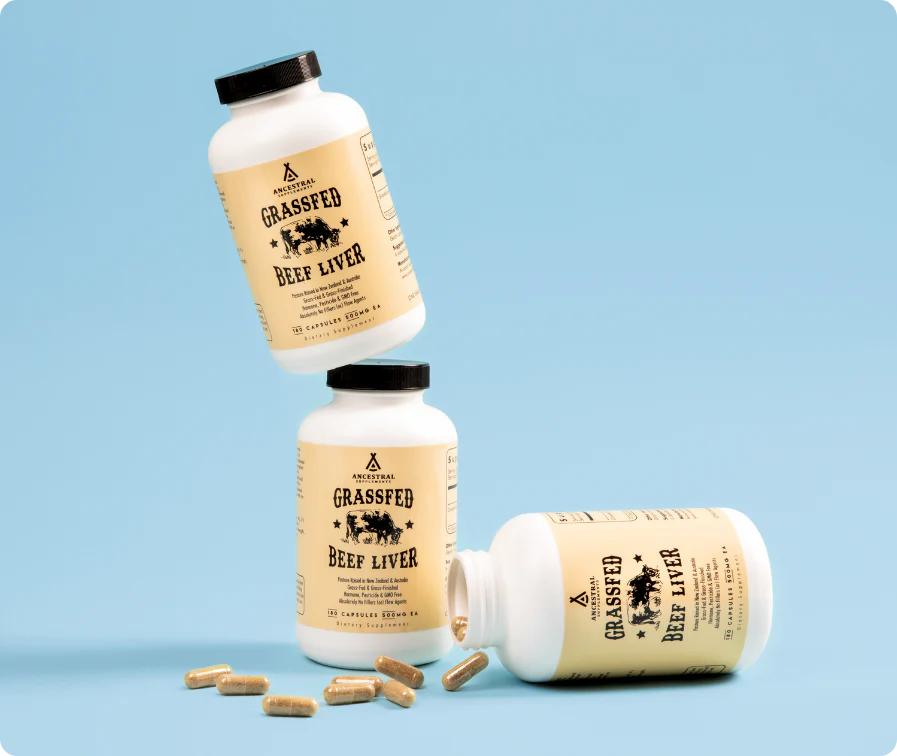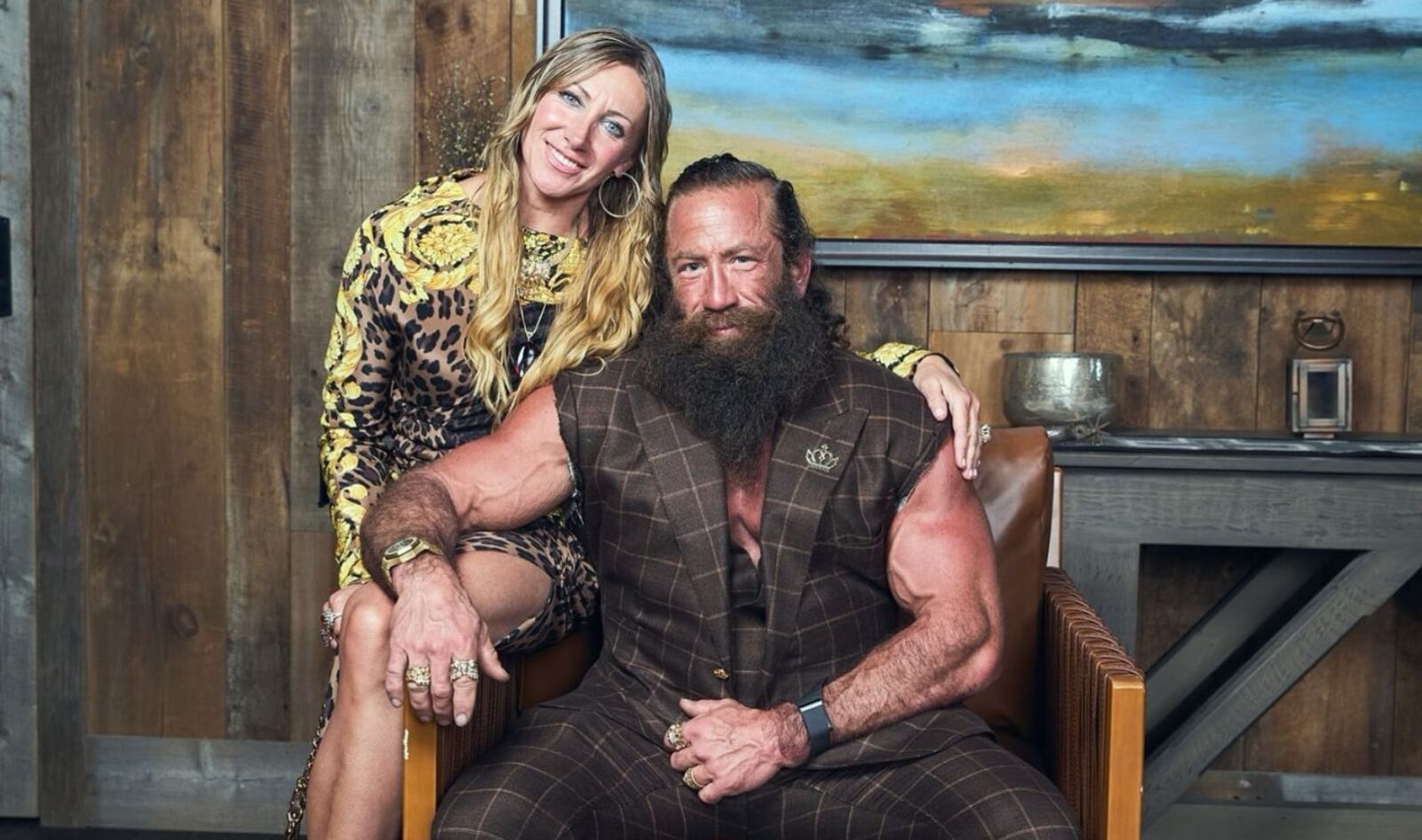In the Netflix documentary, Untold: The Liver King, Brian Johnson (aka the Liver King) makes a handful of points that are hard to argue with, chief among them is the idea that ultra-processed foods (UPFs) are harming our health. And science backs him up: UPFs have been linked to at least 32 chronic diseases, prompting experts to recommend reducing our intake for better health. Johnson’s diet certainly qualifies as unprocessed.
The problem? Instead of turning to nutrient-dense, plant-based whole foods, Johnson has historically promoted the carnivore diet, living off of foods like raw liver, bull testicles, and fertilized eggs. Unprocessed? Yes. But healthy? Many nutrition experts would say: absolutely not.
As Healthline expert Lizzie Streit, MS, RDN, LD, puts it: “No controlled studies support claims that the carnivore diet can help eliminate health issues. It lacks beneficial nutrients, including fiber and plant compounds like antioxidants.”
According to Johnson, our ancestors followed a meat-heavy diet—so it makes sense, he argues, that it’s best for us too. But there are a few flaws in that logic.
Is Liver King’s ancestral diet accurate?
Firstly, we evolved to cook meat—unlike what you see Johnson and his family doing in the Netflix documentary, where they often eat meat raw, sometimes straight from the carcass.
“The ability for humans to cook meat is what some biological anthropologists say is the reason our brains developed to become much larger,” Felicia Wu, PhD, a professor in food safety, toxicology, and risk assessment at Michigan State University, told Verywell Health. “It takes a lot of work to chew and digest raw meat compared with cooked meat. To dispense calories that way in prehistoric times was a disadvantage to humans.”
 Liver King
Liver King
However, research also suggests that early humans didn’t eat as much meat as commonly believed. While they likely consumed some (mostly by scavenging rather than hunting), the bulk of their diet came from gathered foods like flowers, fruits, seeds, and tubers.
Johnson himself knows that a diet that incorporates plants is good for our health. At the end of the Netflix documentary, released last month, you see him eat freshly picked, homegrown strawberries. He also acknowledges that he has started eating plants again and feels better than ever. He declares: “Vegetables and testicles, I can have all of it!” Johnson, who was outed as a fraud for lying about taking steroids, also says he was “wrong” about the carnivore style of eating.
“I don’t know shit,” he says. And yet, the Liver King brand persists. “Liver still is king,” Johnson said on Instagram after the documentary was released. He adds: “We eat nose to tail everyday.” He continues to explain that he and his family have rebranded, and he still stands by “the ancestral tenants,” noting that they don’t cost anything to follow.
Liver King’s supplement brand isn’t slowing down
That’s mostly true. Most of Johnson’s set of “ancestral tenants,” which cover things like getting good sleep, regular movement, connection with the earth, and community, don’t cost anything to achieve. But they are inherently tied to his brand, Ancestral Supplements, which has helped him achieve a self-reported net worth of $310 million. At the time of writing, a jar of Ancestral Supplements Grass Fed Beef Organs will set you back just shy of $50.
Under the tenant “eat,” listed on the Ancestral Supplement website, the description reads: “Our bodies crave nutrient-dense foods, like animal organs, but these can be hard to find and consume. We suggest the convenience of our high-quality supplements and choosing whole foods rather than processed foods. Eat like your life depends on it.”
Under “shield,” the description reads: “In the modern world, your body is constantly under attack by viruses, processed foods, seed oils, EMFs, negative energy, etc. It is important to boost your immune system with Ancestral Supplements.”
 Ancestral Supplements
Ancestral Supplements
BECOME A VEGNEWS VIP: Get exclusive product deals, freebies, and perks galore!
There is no research to suggest that seed oils are “attacking” our bodies. Scientists have also confirmed that electric and magnetic fields (EMFs) are unlikely to cause us harm. As for negative energy? That’s not a medical diagnosis, it’s a buzzword. And while some ultra-processed foods are undeniably bad for us, grouping all processed ingredients into one “toxic” category oversimplifies a complex picture.
Like many wellness influencers, Johnson leans heavily on fear-based language to sell a lifestyle and, more importantly, supplements. The implication is clear: the modern world is toxic, your body is under constant attack, and only ancestral eating (and Johnson’s products) can help you.
But Johnson is not alone. In the same month that Liver King’s Netflix special was released, a study by the Freedom Food Alliance and the Rooted Research Collective warned that nearly 90 percent of influencers pushing extreme diets on social media do not have medical training.
“Superspreader [influencers] exploit confusion by offering dangerously simple answers dressed up as hacks, often driven by profit, not science,” Alice Millbank, co-founder and Chief Scientific Officer at Rooted Research, said in a statement.
But like Johnson, who was exposed as a scam artist and now supplements his own diet with plant-based foods, influencers may be aware of the confusion they’re causing with their misinformation. That’s the paradox at the heart of wellness influencer culture: moderation doesn’t go viral, but raw liver does.
For more plant-based stories like this, read:
JUMP TO ... Latest News | Recipes | Guides | Health | Subscribe









